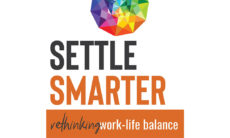Like many of our clients, you’ve probably spent considerable time in the last few months making facilities decisions and getting ready for employees to starting returning to the office. They will join the numbers of essential workers who braved this environment daily for a year before the rest of us. How leaders navigate this next phase will make – or break – your company culture. In our last 21st Century Leadership Letter™, we laid out the biases that influence leaders to promote onsite working. I want to spend a few moments sharing some ways to keep your return to office (RTO) milestone from turning into a DEI millstone for your company.
Be Agile
A recent study reported that 70% of companies plan to bring their employees back to the office this fall. Many like Goldman Sachs beat that pack by a season. What happens when the Delta, or some other new variant, wreaks havoc and threatens your employees’ safety? Try this: instead of prioritizing the company’s challenges, put people and their safety first. We all learned that agility is vital when dealing with COVID, and sticking to the company’s agenda at the expense of your employee’s well-being, is neither good for your business nor good for them.
If you can’t find a way to hold off, then at the bare minimum, don’t relax precautions. Immunocompromised and disabled people who enter your reopened space, from employees and contractors to customers, all want to have confidence that they have no increased exposure to COVID. This assurance is for them and the other people they interact with as caregivers, friends, and family. Are the facilities’ decisions you’re making prioritizing the safety and well-being of your staff to minimize outbreaks? Or, is your race to return trumping your employees’ safety?
Be Inclusive
When it comes to diversity, equity, and inclusion, if there’s anything that can make your return to office efforts a millstone, it is the prospect of your diverse employees enduring microaggressions, lack of advancement, and hostile work environments before and after an extended commute.
Consider what a recent survey revealed about the in-office challenges diverse talent had to face before Covid:
- Having colleagues touch their hair.
- Being mistaken for another colleague of the same race (a problem solved by having names displayed in video meetings)
- Overhearing insensitive commentary on or being pressured to discuss traumatizing news events such as racist violence or coronavirus outbreaks in their home country
- Fielding comments from passersby on their “angry” (actually focused) expression
No wonder many are saying they don’t want to rush back. These issues existed before the coronavirus interruption, and companies had ample time to address these problems before the pandemic. Most didn’t. Asking your Black and Brown, LGBTQ+, women, and disabled workers to return without ensuring a more inclusive culture is a recipe for failure.
If you insist on racing back, be sure you’ve revamped your culture because otherwise, you are likely to experience The Great Resignation like other companies.
Don’t Go Back, Go Better.
RTO is a case study in leadership. If you are not taking the time to up-level your leaders’ skills and put in place programs and policies to create a more inclusive culture, you’re missing the moment. Follow the lead of our forward-thinking clients and make the most of this moment. Do a culture assessment, provide leadership training, and support them to map out their hybrid working strategy. At the very least, follow our four guiding principles for implementing a successful RTO:
Focus on guidelines, not policies. Provide policy only when regulations/laws require, or sparingly as company culture dictates.
Be results-focused. Prioritize what work gets done rather than how/when/where it gets done.
Distribute/delegate decision-making. Empower each team to decide when/where/if their group should meet.
Empower employees with a sense of agency. Flex to the team’s needs rather than expecting the team to flex to the leader/organization.








